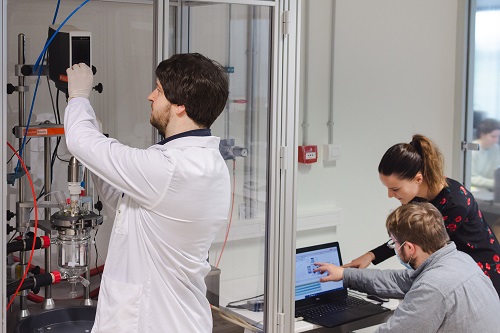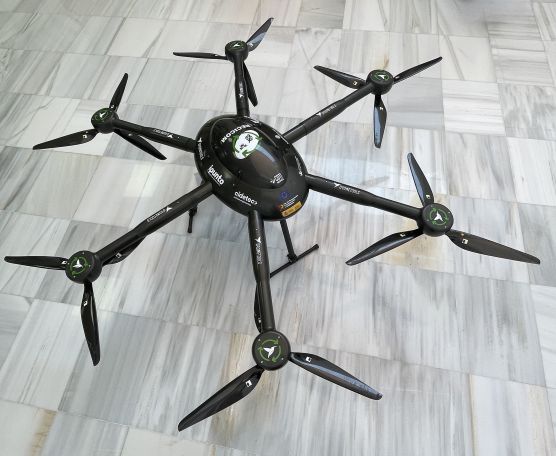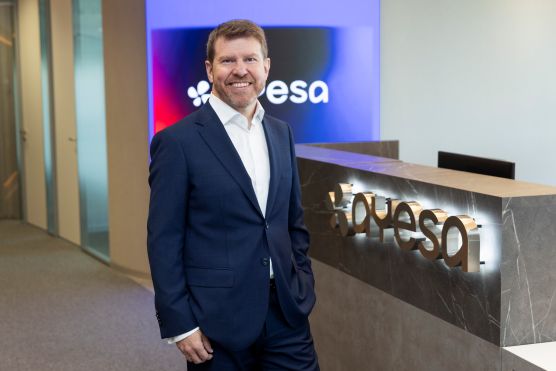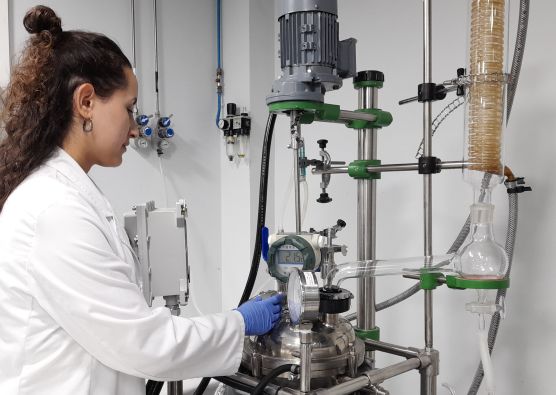CIC energiGUNE promotes the production of critical metals for batteries from secondary resources of the mining and metallurgical industry

The Basque centre is part of the European METALLICO project, which aims to alleviate Europe’s dependence on essential raw materials for batteries by recovering these types of metals from slag and waste from mining sites.
The METALLICO consortium, made up of 23 partners covering the entire value chain, has identified four case studies in Europe that will enable the recovery of metals such as lithium, cobalt, copper, manganese and nickel.
 CIC energiGUNE, a leading Basque research centre in electrochemical energy storage, thermal energy storage and conversion and hydrogen technologies, is working on the possibility of recovering critical materials for batteries, such as lithium or cobalt, from waste from the mining and metallurgical industries. This research is part of the European METALLICO project, of which CIC energiGUNE – a member of the Basque Research and Technology Alliance-BRTA – is a member, along with 22 other entities and companies on the continent.
CIC energiGUNE, a leading Basque research centre in electrochemical energy storage, thermal energy storage and conversion and hydrogen technologies, is working on the possibility of recovering critical materials for batteries, such as lithium or cobalt, from waste from the mining and metallurgical industries. This research is part of the European METALLICO project, of which CIC energiGUNE – a member of the Basque Research and Technology Alliance-BRTA – is a member, along with 22 other entities and companies on the continent.
“We are convinced that Europe has a much greater potential to produce critical raw materials than is believed; the problem is that until now it has been excessively dependent on imports,” said Nestor Antuñano, Principal Investigator of CIC energiGUNE in the METALLICO project, “With this project we are giving Europe a new opportunity to position itself in a key strategic sector and reduce its dependence on countries rich in these types of metals, such as China, South Africa or Australia, to the minimum possible”.
The METALLICO consortium spans the entire value chain, including mining and industrial sites with primary and secondary sources of critical and battery metals; experienced partners in the development of novel production processes for battery-grade materials; industrial end-users; and SMEs in the battery, cement, paint and ceramics sectors. Within this conglomerate, CIC energiGUNE is in charge of coordinating the validation of the final products recovered by different industrial users, as well as validating the elements obtained from mining and metallurgical waste (Li2CO3 and CoSO4) in the battery manufacturing sector.
The need to develop a project such as METALLICO is supported, among other aspects, by the import data for the main metal used in today’s batteries: lithium. Today, the EU is 87% dependent on imports of lithium concentrates, and 100% on imports of refined compounds, as there is no refining in any country on the continent.
For its integral development, METALLICO includes four case studies in the European Union with possibilities for the recovery of this type of material: Li2CO3 suitable for batteries from a primary deposit of spodumene-lepidolite (LIT); Cobalt and CoSO4 concentrates suitable for batteries from a secondary mine resource (CLC); and Copper, Cobalt, Manganese and Nickel concentrates from metallurgical slag from a lead refining company and secondary mine waste.
The partners that make up the METALLICO consortium, in addition to CIC energiGUNE, are the following: Idener R&D (project leader); Technische Universitaet Bergakademie Freiberg; Universitat Politecnica de Catalunya; Siec Badawcza Lukasiewicz – Instytut Metali Niezelaznych; Teknologian Tutkimususkeskus; Fraunhofer Gesellschaft Zur Forderung der Angewandten Forschung; G.E.O.S. Ingenieurgesellschaft; Cementos La Cruz; Euroatomizado; Glencore Nikkelverk; Cobre las Cruces; Cetaqua, Corporacion Chilena de Investigación del Agua; Tharsis Mining; Politecnico di Torino; Asistencias Técnicas Clave; Radical Innovations Group; Minera Los Frailes; Lithium Iberia; DEC Gesellschaft Fur Chemischetechnik Und Biotechnologie; Geniki Metalleutiki Kai Metallourgiki Anonimi Etairia; and Omya International AG.




